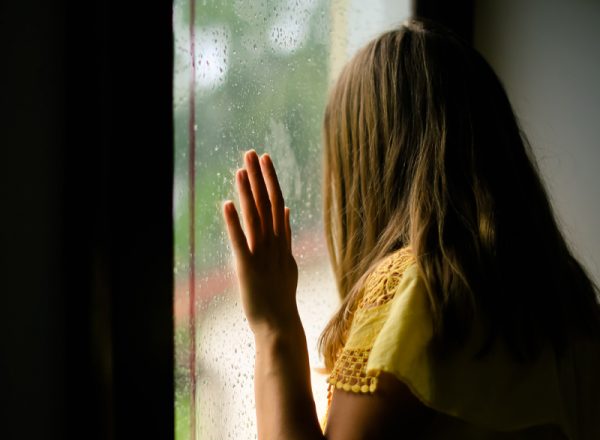The recent social distancing protocols that have resulted in the closures of public places have reminded me of the hidden risks for women and children living in domestic violence. I was once that woman, living in an abusive relationship for several years with four young children. I know firsthand that social distancing and isolation is an abuser’s dream. It allows them to control and to induce fear through rage and violence without concern for public reprimand.
Since the Coronavirus outbreak, it has been reported that, “Chinese activists say domestic violence cases have risen dramatically as people across much of the country have been quarantined during the Coronavirus outbreak.” It’s too early to know how much domestic violence rates will rise in Canadian cities, but I do know that, as with the Coronavirus, we’re all vulnerable. Here are three considerations for supporting women in your community who may be experiencing domestic violence or escalated gender-based tensions at home.
Make check-in calls instead of texting
When checking in on a woman experiencing domestic violence or tensions within the home, there is a good chance their texts are being monitored. It’s also common for abusers to have passwords to all phones in the house and other electronic devices. Keeping this in mind, it may be better to call your female friend or colleague and ask a couple of questions that require “yes or no” answers. For instance, you may ask, “Do you and your children feel safe?” It is important not to ask too many safety questions as the abuser will likely be close by. Also, some women in this circumstance may feel overwhelmed by a stream of questions. Slip in a question that will give you a sense of how everyone is doing while keeping the conversation focused on everyday topics.
Offer a monetary gift; financial abuse is a common form of domestic violence
With the recent school/daycare closures, a disproportionate number of women are being forced to take time away from work. Service industry and contract workers, often women, are the hardest hit, with unpaid sick leave and a dependency on tips. Also, reduced earnings can lead to further stress in the home, which is a precursor to further violence. Allison Randall, Vice President of Policy and Emerging Issues at the National Network to End Domestic Violence, said, “Coronavirus can lead to folks being trapped in abusive relationships, not because of the virus itself, but because of its economic impacts.” Providing women with financial support is very important at this time. If you’ve been social distancing and believe you are well, offer to leave a care-pack at her front door and include cash or a gift card. If sending an etransfer is preferable due to health concerns, be sure to deposit money into her personal bank account because joint accounts will alert the abuser to recent activity while making the money available to him. However you choose to extend financial support, do it in a way that preserves the dignity of the women you are striving to help. Shortly after leaving my abuser, I was financially destitute and a friend dropped grocery gift cards in my mailbox but never spoke a word of it. I still appreciate that gesture.
Be a positive connection to the outside world, not a judge
While it may be tempting to wonder why your friend or colleague didn’t leave the home prior to a pandemic, this is not the time to judge or ask those types of questions. Domestic violence is something that insidiously develops over years; if it were easy or safe for women to leave, more would. Right now, your job is to be a good listener and positive connection to the outside world.
If you choose this moment to question the judgement of the woman you are striving to support, you may face resistance or cause her to retract further into her unsafe home. Make sure your check-ins don’t feel like an interrogation. Offer advice to keep the kids busy and share uplifting music or activities. By maintaining contact, you are creating the opportunity for her to ask for help.
I’ve experienced the visceral sense of fear many women isolated in their homes are feeling. However, abusers are unpredictable, and every circumstance is different, so these considerations are not meant to be prescriptive. If you have serious concerns for your friend or colleague’s safety, call the police and ask them to conduct a wellness check. These checks can escalate to increased violence if the abuser is left in the home so only use this option if you believe an immediate intervention is needed. Although it’s important to continue practicing safe social distancing, it’s important to remember than even in isolation, we are a community.

